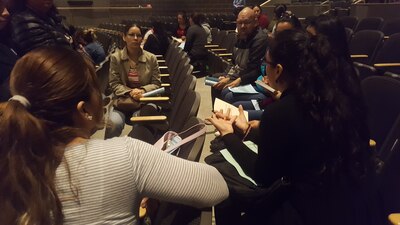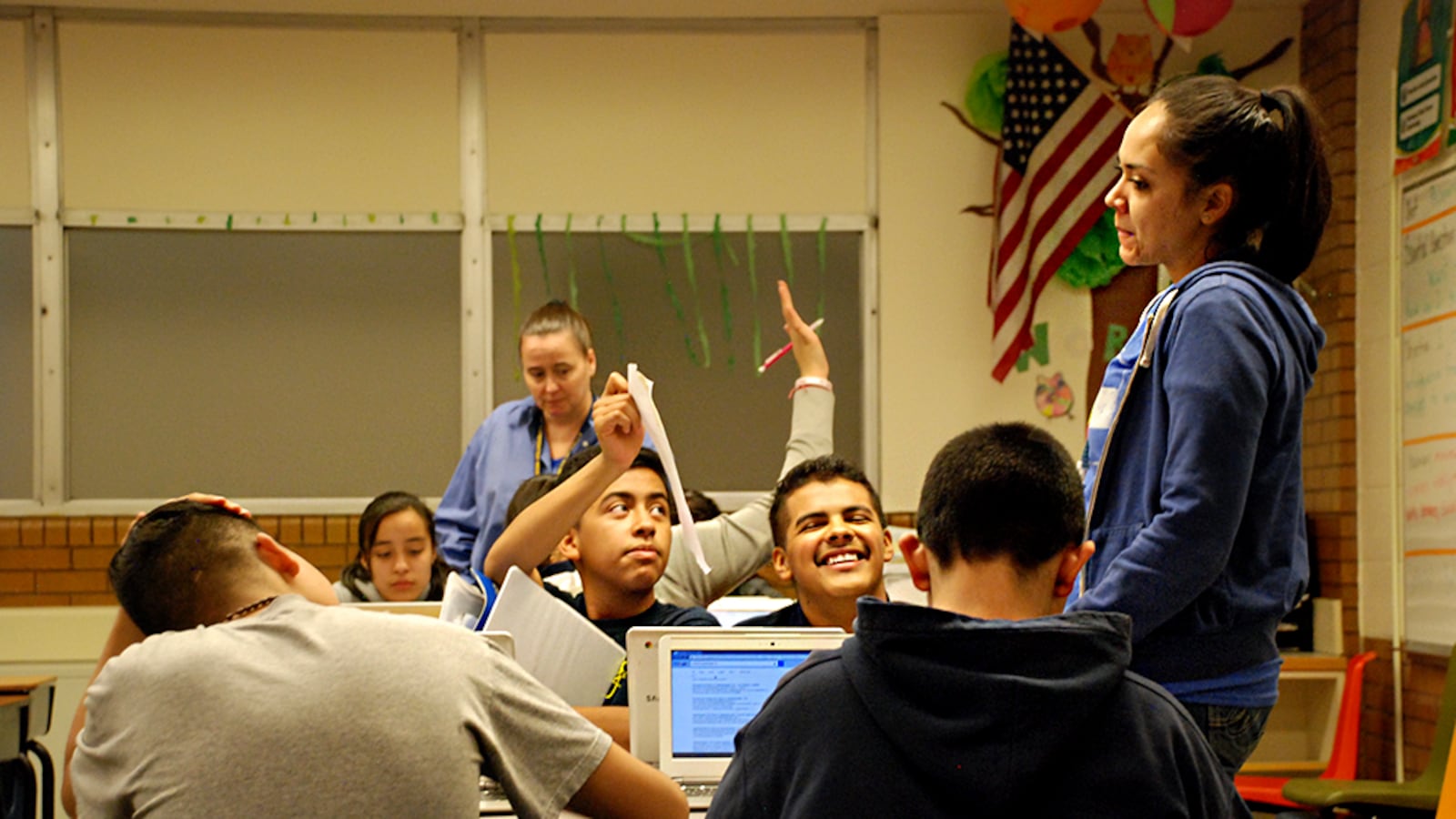Westminster mom, Martha Tapia, had gotten her hopes up last year when her daughter received a scholarship of $15,000 to go to Regis University.
“But then, my daughter said it wasn’t enough,” Tapia said. “I wouldn’t be able to come up with the rest of the money.”
Instead, Tapia’s daughter is now attending college classes at a community college. With her younger children, Tapia wants to be more involved to see if she can better understand how college admissions work and how she can help her kids attend the schools they really want to go to. On Thursday, at Westminster High School, she found a program that promised to help her do just that.
Westminster Public Schools staff this week launched PASS, a parent engagement program at Westminster High School.
It’s the third semester the district has offered the nine-week program at one of their schools.
The program has multiple goals. Among them is to help parents better understand the district’s competency-based model — a system based on grouping, and advancing, students based on the standards they’ve proved they learned, instead of on their ages.
The district started rolling out the model in 2009. Seven years later, when the district paid for a review by an outside organization, the audit found problems including that many parents still didn’t understand the model and had a difficult time understanding report cards. The district is now on a state-ordered improvement plan. As they forge ahead with the competency-based model, helping parents and students better understand how it works is a big part of that effort.
“We knew there was an aspect of parent support that we needed in our district,” said Sandy Steiner, the district’s director of post-secondary and workforce readiness. “For us it has been a plan realized. I couldn’t be happier with the program.”
The PASS program was tailored to Westminster, but was purchased and modeled after a California-based program that has 30 years of data and is now used in 15 states. It has been paid for so far by two grants, both of which are set to end this summer. The district has applied for an extension of one of the grants, but staff running the program are also asking the district’s school board this spring to make up the gap to keep the program running.
“This is a program that is really helping shift the life of our families,” Steiner said. “We will figure out a way.”
The Westminster district is still the only one in Colorado to use the program to engage and educate parents, but other districts have been asking about the program.
Besides helping Westminster teach parents to understand the district’s competency-based report cards, it helps parents — many of them immigrants — understand the country’s education system.
Classes taught during the nine-week program touch on how schools get funded, how state standards work, how students earn credits, and the various opportunities in high school to prepare for a college or career.
“For our students performing ahead of schedule, the opportunities for them to take advantage of college courses and apprenticeships to glide right into their future careers or their post-secondary options — there has been nothing quite like it before,” Steiner said. “But it’s dependent on students being prepared.”

As parents discussed why they had attended the program during a kickoff event this week, all said they believed their kids would graduate and go to college.
But parents were also quick to think of the many challenges their kids face: how to pay for college, deportation fears, and single-parent homes where parents are sometimes too tired to help.
The most recent graduation data show that about 58 percent of Hispanic students in Westminster Public Schools graduate from high school in four years. About 70 percent graduate high school in five years.
But officials cite data from the PIQE program in California (or the Parent Institute for Quality Education) where the local program comes from. There, officials have tracked students whose parents participated in the program and found that 90 percent of them graduate.
“We are tracking that going forward,” said Whitney Allen, Westminster’s parent engagement coordinator, who runs the program. “We don’t have enough of a track record, but we are finding that we are having similar impact.”
Officials say they reached 150 parents so far during the pilot and the second semester. Those parents have almost 500 students in the district. On Thursday, another 160 parents, mostly from the high school where the program will be run this time, promised to go through the classes starting next week.
Anecdotally, at Scott Carpenter Middle School, where the program was piloted last year, the following semester school officials reported “an astronomical bump” in the number of parents attending parent-teacher conferences. The school also saw a significant jump in the number of students who had raised their scores enough to participate in a particular club, Allen said.
It can’t all be tied just to the parent engagement program, but Allen said they are indicators that parents are doing something different.
Officials say parents report being more comfortable asking questions. Other parents report that after understanding the district’s competency-based model, they can now log into their parent portal (or ask their child to) and then track progress daily to talk to their children about it.
“Culturally sometimes our Latino families give over the authority to the schools, saying the schools are going to help my child, but we want to really bring it back,” Allen said.
“Even if you haven’t had a high school education or went to college, there are things you can be doing to support your students at home, and we give them those tips every week,” Allen said. “It’s about just informing parents what’s possible.”

